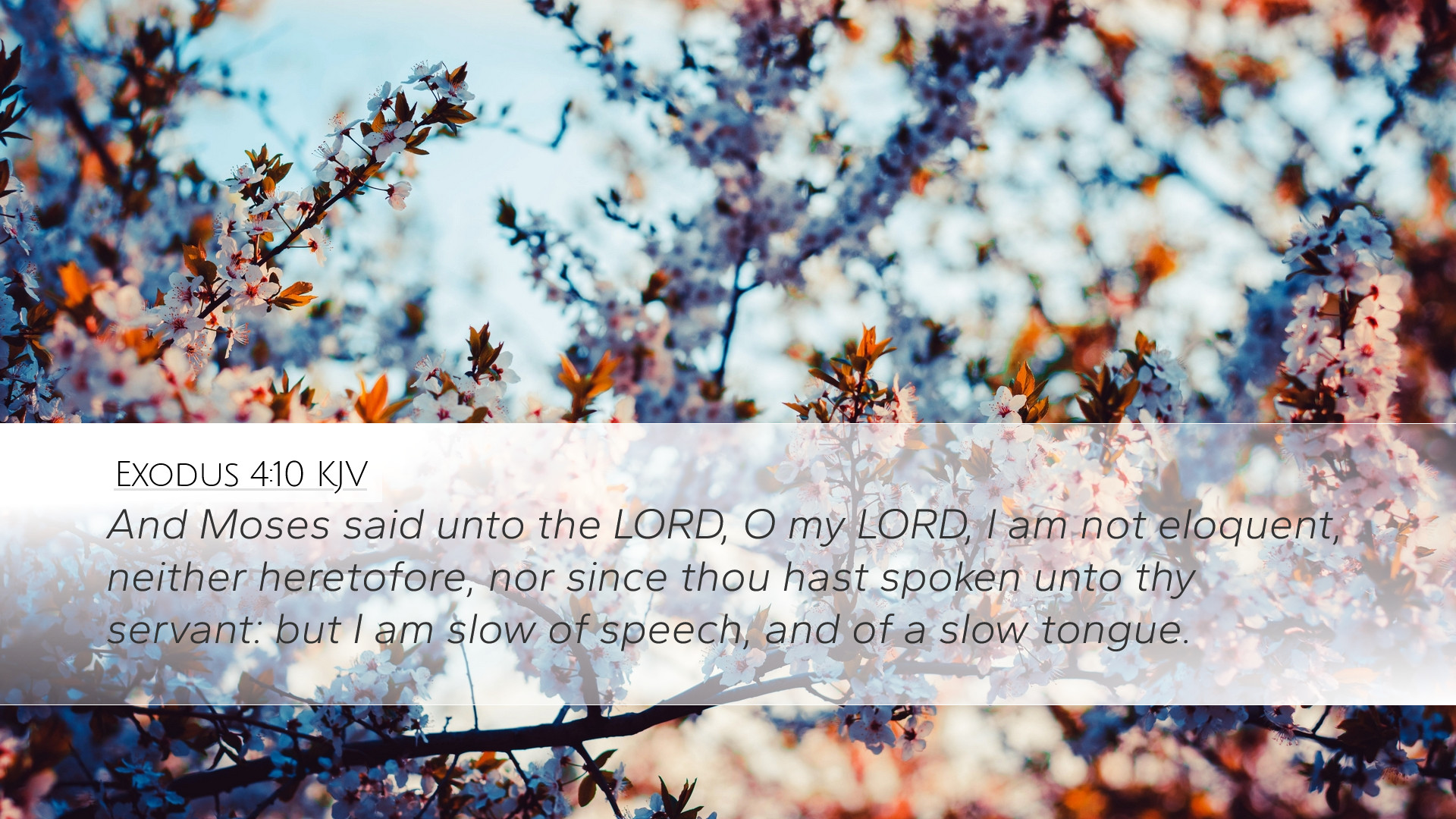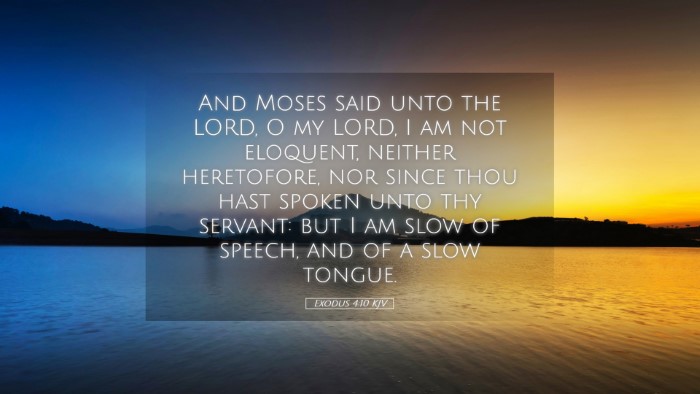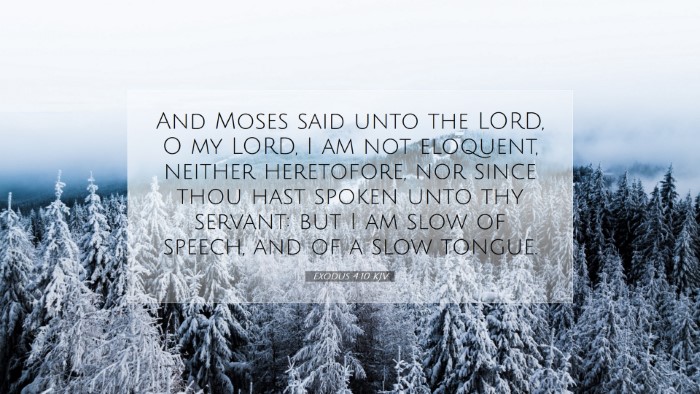Commentary on Exodus 4:10
In Exodus 4:10, we find Moses expressing his hesitation and insecurity in being chosen as a leader and messenger of God. He says, "O my Lord, I am not eloquent, neither before nor since You have spoken to Your servant; but I am slow of speech and slow of tongue." This verse reveals the profound struggle within Moses as he grapples with his own limitations and inadequacies when confronted with the divine calling.
Understanding Moses' Hesitation
Moses’ reluctance indicates a deep self-awareness of his weaknesses. His admission of being "slow of speech" suggests an understanding that he did not possess the oratory skills typically expected of a leader. Throughout history, the call of God has often encountered the human tendency to focus on personal deficits rather than the sufficiency of God’s provision.
Matthew Henry emphasizes that this reluctance reflects a natural human response to divine calling, where personal doubts can overshadow the power of God's mandate. He suggests that such vulnerability is not a sign of lack of faith, but rather a genuine recognition of one's own inadequacies. Henry points out that God’s choice of Moses, despite his imperfections, underscores the sovereignty of God in using the weak for great purposes.
God’s Assurance and Moses’ Response
In the subsequent verses, God responds to Moses' objections with both patience and reassurance, indicating that He is the one who equips those He calls. Albert Barnes interprets God’s response as a revelation of divine providence—highlighting that Moses’ inadequacies do not thwart God’s plans. Barnes stresses that the effectiveness of a leader comes not from their eloquence but from God’s empowerment.
This dialogue serves as a reminder to pastors and theologians that God often chooses those who feel unqualified to communicate His message, allowing His power to shine through their weaknesses (2 Corinthians 12:9).
Linguistic Context and Implications
The phrase "slow of speech" raises interesting questions regarding its interpretation. Adam Clarke adds a linguistic dimension, suggesting that it could denote a variety of speech difficulties or hesitations that might hinder effective communication. Clarke’s examination indicates that such physical attributes should not inhibit one's understanding of God’s calling. He elaborates that the power of God’s message is not bound by human capabilities—highlighting the strength found in humility and reliance on divine strength.
The Call to Leadership
The calling of Moses serves as an archetype for leaders in ministry today. Leaders often face similar crises of confidence and self-doubt. This historical account encourages contemporary leaders to embrace their vulnerabilities, recognizing that God’s choice reflects His plan for their lives despite their perceived limitations.
- Embrace Vulnerability: Leaders are called to be authentic about their weaknesses.
- Trust in Divine Empowerment: The effectiveness of one’s ministry is reliant not on personal skills but on God’s enabling grace.
- Encourage Others: Just as God reassured Moses, modern leaders should encourage others in their callings, bolstering them against their fears.
Conclusion
Exodus 4:10 stands as a powerful reminder of the universal struggle between self-doubt and divine calling. It teaches us that God values our sincere concerns and responds with grace. The legacy of Moses teaches us that true effectiveness in ministry arises not from human eloquence or ability but rather from the obedience and faithfulness of those who serve Him.
As we reflect on this passage, let us encourage one another to embrace our call, regardless of perceived limitations, and trust in the omnipotent God who qualifies the called for His divine purposes.


